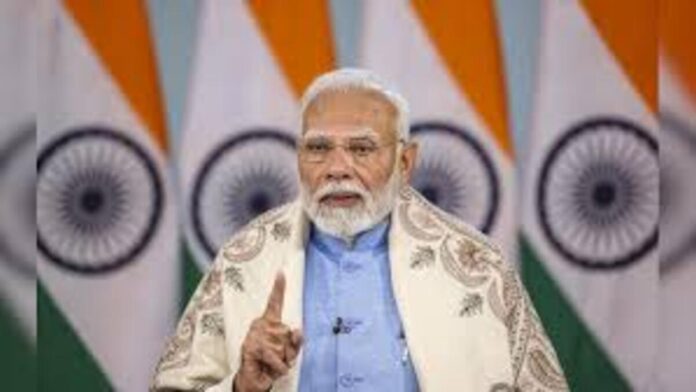In order to inaugurate the strategically significant Z-Morh or Sonamarg tunnel in Ganderbal district, Prime Minister Narendra Modi is traveling to Jammu and Kashmir on Monday. The event venue has been taken over by the PM’s security team, and extensive security measures have been put in place for the occasion. On Monday, PM Narendra Modi is expected to visit and officially open the Sonamarg Tunnel at approximately 11:45. From there, PM Modi is probably going to give an address as well.
According to authorities quoted in a news agency report, the Army, Jammu and Kashmir Police, and paramilitary forces are all part of the security machinery for Monday’s inauguration. They also stated that intensive area control exercises, searches, and patrols were being carried out to ensure the ceremony ran smoothly. Sharpshooters have been placed at strategic locations, and technical and aerial surveillance—including using drones—is also being carried out. The officers stated that the region is being watched continuously. “Security has been tightened near the Z-Morh tunnel. Multi-layered security arrangements have been put in place and the PM’s security team, comprising the SPG personnel, has taken over the venue,” they added.
The Prime Minister of India and their close relatives are safeguarded by the Special Protection Group (SPG), an organization under the jurisdiction of the Indian government. The authorities closed the Srinagar-Leh national highway from Saturday to Monday citing “icy road conditions caused by inclement weather and to facilitate maintenance work by road maintenance agencies”. However, the news agency report said it is widely perceived that the arterial road link between Jammu and Kashmir and Ladakh has been shut for the prime minister’s visit.
The strategically located 6.5-km Z-Morh tunnel, which was constructed on the Srinagar-Leh National Highway at a cost of ₹2,400 crore, is anticipated to improve vehicle accessibility to the Ladakh area year-round. The project was finished last year, with a soft opening scheduled for February 2024. Work on the project started in May 2015. The tunnel is vital in terms of the defence needs of the country in the Ladakh region, close to China border, and also connecting the youngest Union Territory to the rest of the country.
The Z-Morh or Sonamarg tunnel is 12 kilometers long and 8,650 feet above sea level. It consists of approach roads, an egress tunnel, and the 6.4-kilometer Sonamarg main tunnel. The Z-Morh tunnel is a two-lane road tunnel with an emergency escape path that is 7.5 meters wide and parallel. By avoiding avalanche and landslide routes and providing safer and continuous access to the strategically important Ladakh area, it is anticipated to improve all-weather communication between Srinagar and Sonamarg on the way to Leh. The Z-morh tunnel was built in an avalanche-prone area, making the road to Sonamarg unusable during snowfall and harsh winters. The tunnel is essential to the region’s tourism business because Sonamarg used to be closed during periods of heavy snowfall. Along with the under-construction Zojila tunnel, the Z-Morh tunnel will ensure uninterrupted connectivity to Baltal and Ladakh regions for military traffic as well apart from civilians. The tunnel is also expected to promote tourism by transforming Sonamarg into a year-round destination, boosting winter tourism, adventure sports, and local livelihoods.
The project’s supervisor, the National Highways and Infrastructure Development Corporation Limited (NHIDCL), has referred to it as a “engineering marvel” that is revolutionary for the area. Taking to microblogging platform X, NHIDCL said, “The Sonamarg Tunnel in Jammu and Kashmir is a game-changer for the region, offering more than just a connection between Gagangir and Sonamarg. This engineering marvel is poised to unlock the full potential of the region’s trade and tourism sectors.” According to the statement, the tunnel is outfitted with state-of-the-art technologies that offer users seamless communication and real-time information. Both tunnels are anticipated to shorten the route from 49 km to 43 km and increase vehicle speed from 30 km/h to 70 km/h after the Zojila Tunnel, which is scheduled to be finished by 2028, is finished. This would guarantee smooth NH-1 communication between Srinagar and Ladakh.




